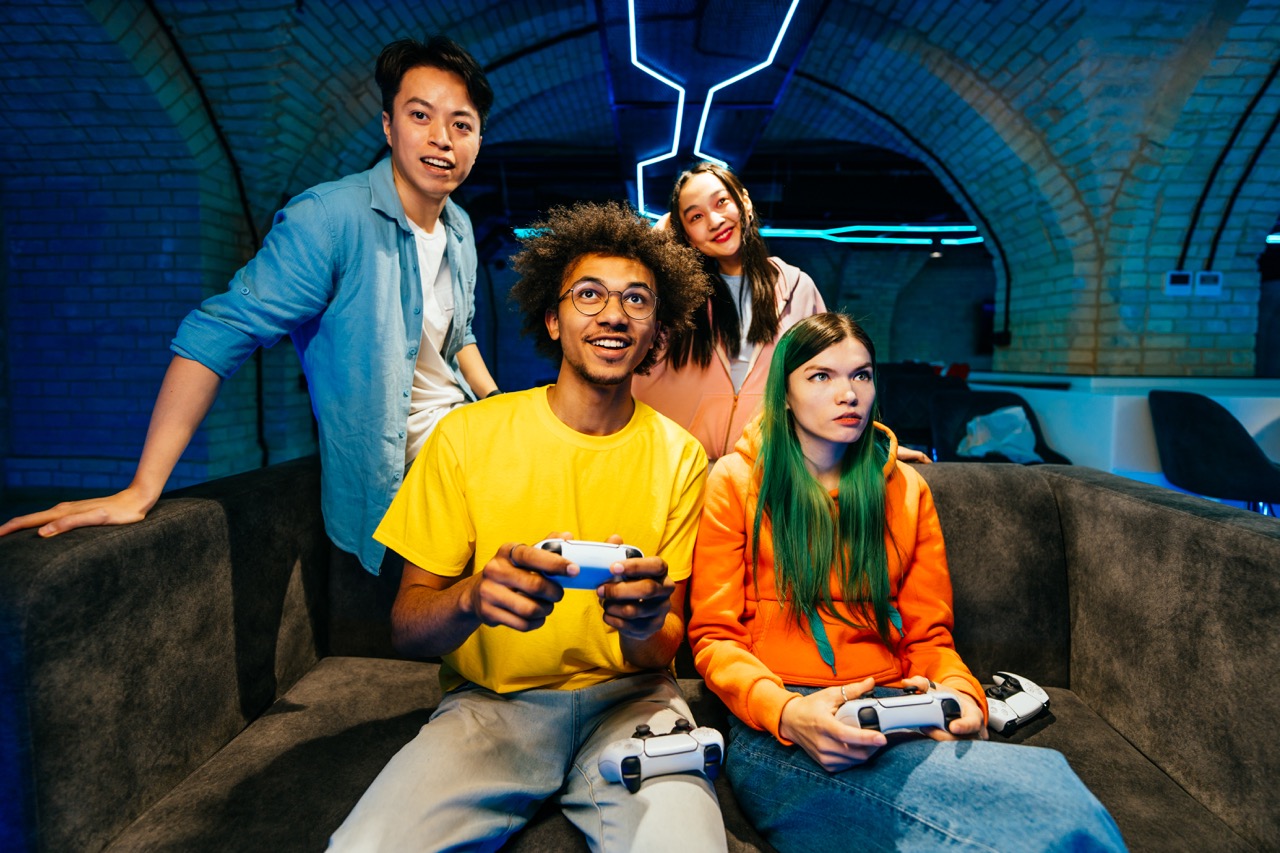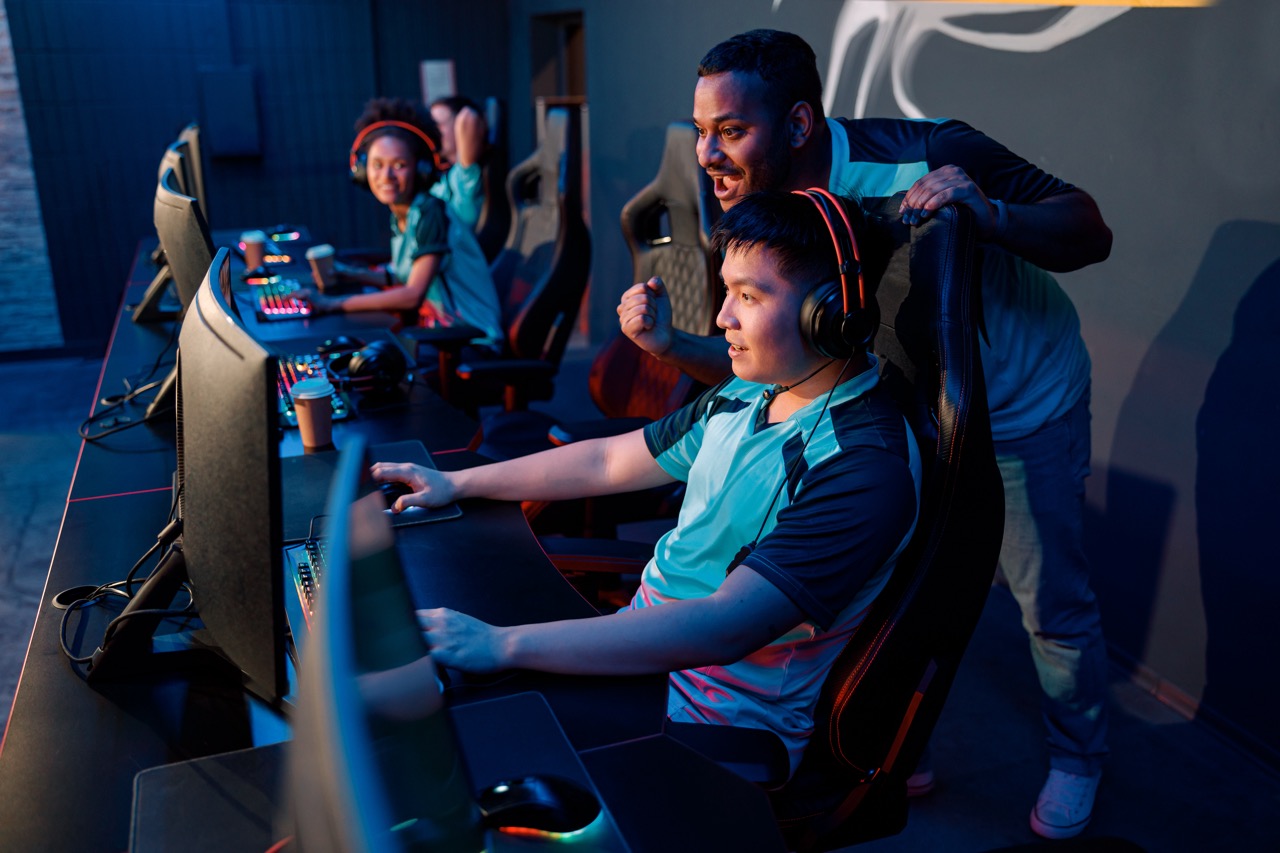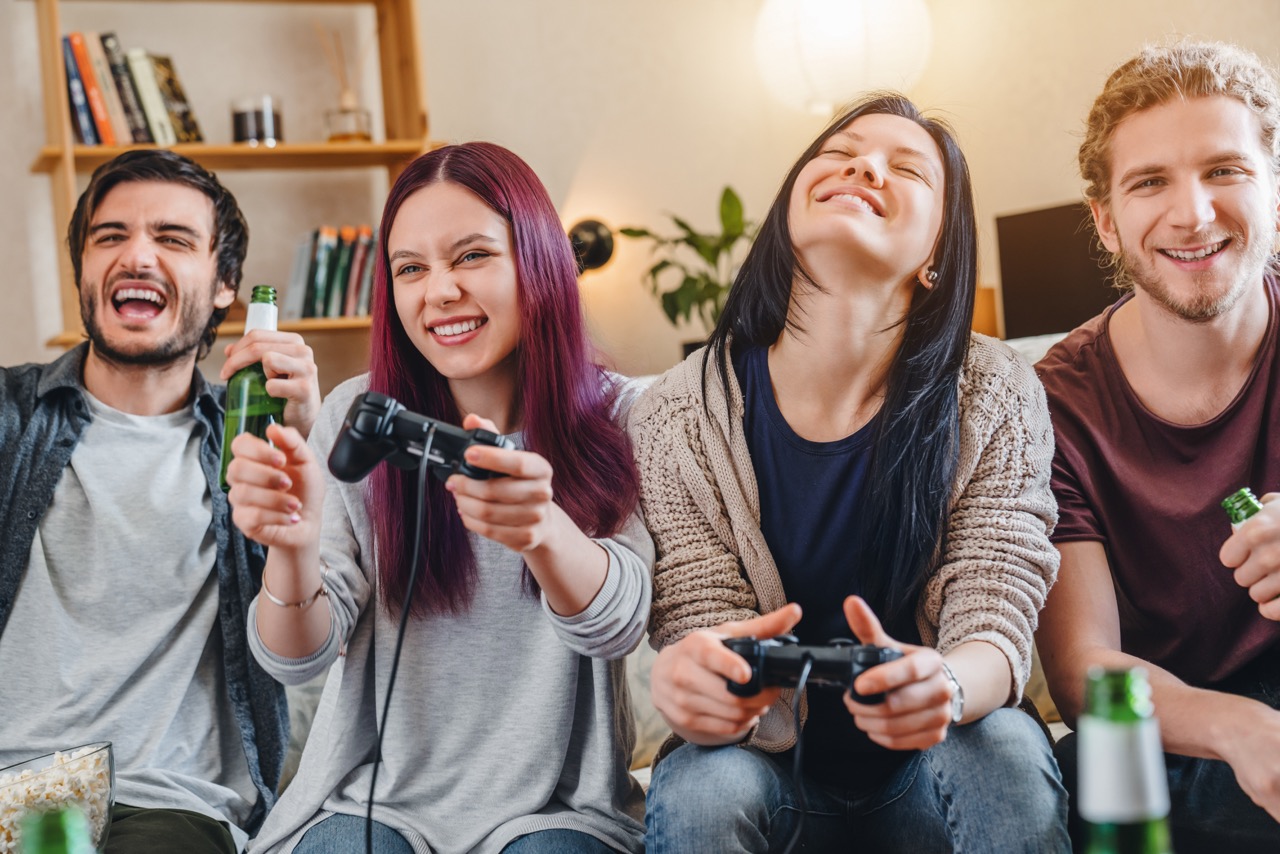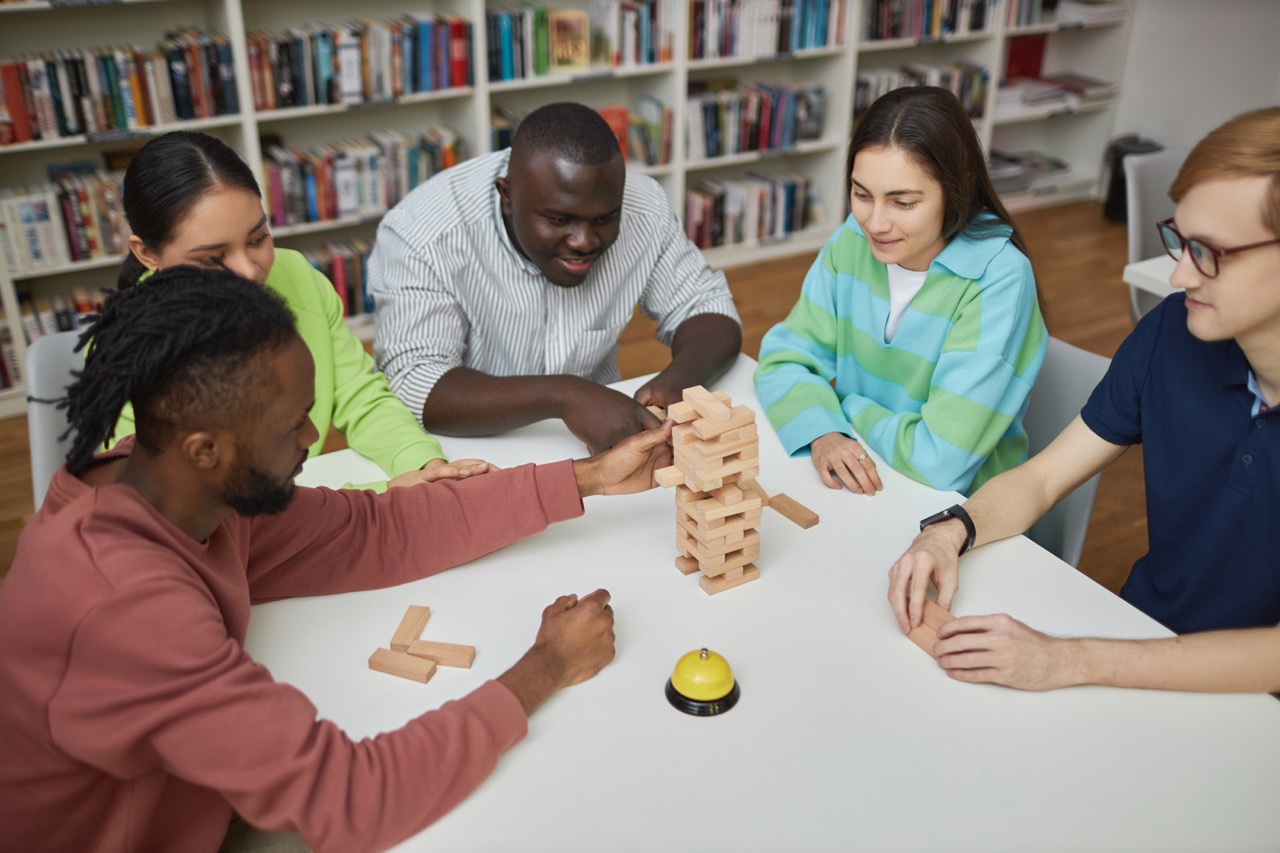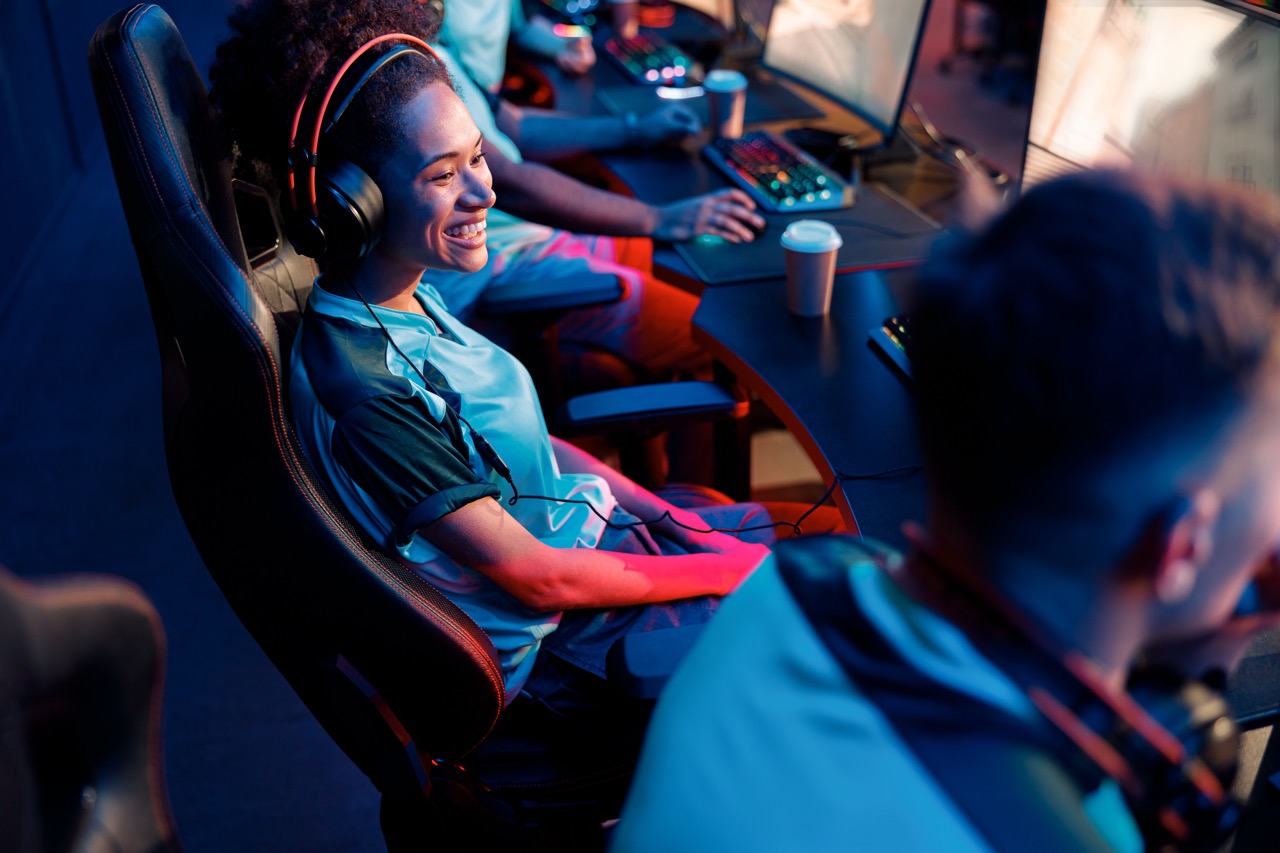Competitive gaming, or esports, has surged in popularity over the past few decades, transforming from a niche hobby into a global phenomenon that captivates millions. With massive tournaments drawing in crowds akin to traditional sports, the psychology behind competitive gaming is as intricate as it is fascinating. Understanding the mental dynamics at play can provide insights into why gamers thrive in high-pressure environments and how they cope with the unique challenges that arise. In this article, we’ll explore the rise of competitive gaming culture, the mindset of professional gamers, the stress they face, the importance of teamwork, and strategies to cultivate a winning mentality.
Understanding the Rise of Competitive Gaming Culture
The evolution of competitive gaming can be traced back to the early days of arcade cabinets, where players competed for high scores. Fast forward to the present, and esports has exploded onto the scene, with popular titles like League of Legends, Dota 2, and Fortnite drawing millions of viewers online and in-person. Streaming platforms like Twitch and YouTube have played a significant role in democratizing access to gaming, allowing fans to connect with their favorite players and teams. The accessibility of gaming technology, combined with a growing acceptance of gaming as a legitimate form of entertainment, has paved the way for this explosive growth.
This rise in popularity is also fueled by the lucrative sponsorship deals and prize pools that come with competitive gaming. Tournaments can offer millions of dollars in prizes, enticing players to train rigorously and hone their skills. This financial incentive has led to a shift in perception, with many aspiring gamers viewing esports as a viable career option. Schools and universities have started to recognize this trend, offering scholarships and dedicated programs to cultivate talent and provide pathways for young gamers.
Cultural factors also contribute to the rise of competitive gaming. The gaming community has fostered a sense of belonging and camaraderie among players, creating a culture that celebrates skill and teamwork. Social media has allowed for the sharing of experiences, creating a network of gamers worldwide who support one another in their pursuits. This growing culture has shifted the narrative from gaming being a solitary activity to an engaging and competitive social experience.
Lastly, the relevance of competitive gaming is enhanced by its intersection with technology and pop culture. Collaborations with popular franchises, celebrities, and even traditional sports teams have brought esports to the forefront of entertainment. With more people tuning in to watch tournaments, competitive gaming has solidified its place in modern culture, indicating that it’s here to stay.
The Mindset of a Pro Gamer: What Drives Them?
Professional gamers possess a unique mindset that sets them apart from casual players. At the core of this mindset is an intense drive for mastery. Many pro gamers dedicate countless hours to practice, analyzing their gameplay and learning from their mistakes. This relentless pursuit of improvement often leads them to adopt a growth mindset, where they view challenges as opportunities to learn rather than obstacles to overcome. This tenacity inspires not only their gameplay but also serves as a motivational force that fuels their passion for the game.
Another critical aspect of a pro gamer’s mindset is resilience. The competitive landscape can be unforgiving, with players facing setbacks, losses, and intense scrutiny from fans and critics alike. Successful players learn to embrace failure as part of the journey, using it to refine their strategies and bolster their mental toughness. This resilience is essential in an environment where mental fortitude can often be the difference between victory and defeat.
Focus and concentration are also paramount for professional gamers. The ability to maintain laser-like focus during high-stakes matches can be a game-changer. Many players develop routines and rituals to help them enter a state of flow, where distractions fade away, and their performance peaks. This mental discipline allows them to perform under pressure, making split-second decisions that can determine the outcome of a match.
Finally, a sense of community and belonging drives many professional gamers. The camaraderie they share with teammates and fellow competitors fosters a supportive environment that helps them thrive. This social connection not only enhances their performance but also allows them to create lasting friendships and networks within the industry, reinforcing their commitment to the competitive gaming scene.
Stress and Performance: The Psychological Balancing Act
Competitive gaming is not without its challenges, and stress is a significant factor that can impact performance. High-stakes environments often create pressure that can be overwhelming for players. The fear of letting down teammates, disappointing fans, or missing out on significant opportunities can lead to anxiety that detracts from their gameplay. Understanding how to manage this stress is crucial for maintaining peak performance.
One effective coping mechanism that many gamers adopt is mindfulness. Incorporating mindfulness techniques, such as deep breathing or visualization exercises, can help players ground themselves amidst the chaos of competition. These practices allow gamers to focus on the present moment, reducing anxiety and enhancing their clarity of thought during intense matches. By training their minds to remain calm under pressure, they can make more effective decisions and execute their strategies with precision.
Additionally, finding a balance between gaming and personal life can alleviate stress. Many pro gamers recognize the importance of physical fitness, nutrition, and social interactions outside of their gaming pursuits. Engaging in regular exercise and maintaining a healthy lifestyle can significantly improve mental resilience, leading to better performance during competitions. Taking time for self-care and leisure activities can rejuvenate their energy levels and provide a much-needed respite from the rigors of competitive gaming.
Ultimately, the ability to navigate stress effectively can lead to improved performance and greater satisfaction in gaming. Understanding that stress is a natural part of competition and implementing strategies to manage it can empower gamers to rise above the challenges they face. With the right mindset and tools, players can transform stress into a source of motivation rather than a hindrance.
Team Dynamics: The Importance of Communication in Play
In competitive gaming, team dynamics can significantly influence a team’s success. Unlike traditional sports, where physical interactions are vital, communication in gaming often relies heavily on verbal and non-verbal cues. Effective communication allows players to coordinate strategies, call out enemy positions, and provide real-time feedback, all of which are essential for victory. Teams that foster open dialogue and trust tend to perform better, as players feel comfortable sharing their thoughts and ideas.
Building strong team dynamics requires investment in relationships, both in and out of the game. Many successful teams engage in activities that promote bonding, such as team-building exercises, social outings, and casual gaming sessions. These interactions help players develop rapport and understanding, allowing them to work more seamlessly together during high-pressure situations. A solid foundation of trust can lead to improved collaboration and decision-making, crucial elements in competitive gaming.
Another crucial aspect of team dynamics is the ability to handle conflict. Disagreements and misunderstandings are inevitable in any team setting, and managing these conflicts effectively can make or break a team’s cohesion. Teams that practice open communication and conflict resolution techniques can navigate challenges more smoothly, turning potential conflicts into opportunities for growth and improvement. Establishing a culture of accountability and constructive feedback creates an environment where players can voice concerns without fear of judgment.
Lastly, successful teams recognize the importance of adapting their communication styles to suit each member’s preferences. Each player may have a distinct way of processing information and responding to stress, so tailoring communication to fit individual needs can enhance overall performance. By fostering an inclusive and adaptable communication style, teams can create an environment where each player’s voice is valued, ultimately leading to more cohesive and effective gameplay.
Mental Health in Gaming: Navigating the Highs and Lows
The world of competitive gaming comes with its unique mental health challenges. While the thrill of competition and the excitement of success can be incredibly rewarding, the pressures and demands of the esports industry can lead to burnout, anxiety, and depression. Many players may experience extreme highs during victories, only to plummet into lows after losses or setbacks. Recognizing the emotional rollercoaster that comes with competitive gaming is essential for maintaining a healthy mindset.
It’s crucial for gamers to prioritize their mental health by developing self-awareness. Understanding one’s emotional triggers and recognizing when stress levels are rising can help players take proactive steps to address their mental well-being. Engaging in regular self-reflection, journaling, or seeking therapy can provide players with tools to better manage their emotions, ultimately enhancing their performance in-game and in life.
Additionally, fostering a supportive community is vital for mental health in gaming. Connecting with fellow gamers who understand the ups and downs of competitive play can provide a sense of belonging and validation. Online forums, social media groups, or local gaming meetups can serve as safe spaces where players can share their experiences and seek support. Building these connections can help players feel less isolated and more understood in their gaming journeys.
Finally, maintaining a healthy balance between gaming and other aspects of life is essential for mental well-being. While passion for gaming is commendable, dedicating time to hobbies, family, and self-care can prevent burnout and promote a more fulfilling lifestyle. By ensuring that gaming remains a source of joy rather than a source of stress, players can sustain their passion for the competitive scene while prioritizing their mental health.
Strategies for Building a Winning Gaming Mindset
Developing a winning mindset in competitive gaming involves cultivating discipline, focus, and a positive attitude. One effective strategy is to set clear, achievable goals. By breaking down larger objectives into smaller, manageable tasks, players can create a roadmap for their development. This method not only enhances motivation but also provides a sense of accomplishment as players achieve each milestone.
Visualization techniques can also be powerful tools for building a winning mindset. Many successful athletes and gamers use visualization to mentally rehearse their gameplay, envisioning themselves executing strategies and emerging victorious. This practice can bolster confidence and help players prepare for the challenges they may face in competition. By creating a mental image of success, gamers can enhance their self-belief and performance.
Embracing a routine can further contribute to a winning mindset. Establishing pre-game rituals, such as warming up, reviewing strategies, or engaging in mindfulness exercises, can help players enter a state of readiness. Consistency in practice and preparation fosters a sense of control and can elevate performance under pressure. Having a routine also helps to alleviate anxiety by providing structure to the competitive experience.






